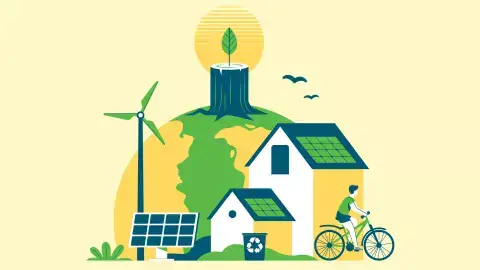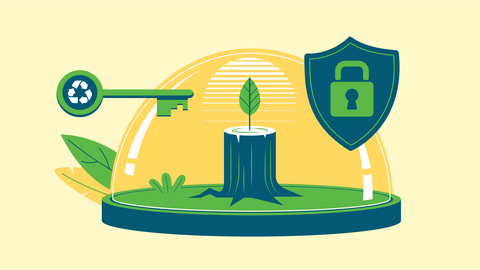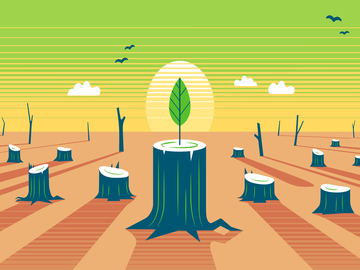Faith, Environment and Climate Change
It is increasingly recognised that faith leaders and faith-based organizations (FBOs) can be, and have already been, essential contributors towards the Sustainable Development Goals (SDGs) and the attainment of Agenda 2030. Nonetheless, to scale-up this potential, there is need for greater synergies between FBOs and other stakeholders, such as policymakers, NGOs, multilateral institutions, government agencies etc. FBOs also need guidance on how they can strategically engage with the SDGs to measure and evaluate their valuable contributions towards the broader global agenda and SDG progress on the ground.
Engaging with faith actors is essential for mobilising the tremendous power they hold in engaging masses of people. Whilst FBOs have long been engaged in areas such as humanitarian assistance, education and healthcare, they have less experience in environmentally-focused work, climate change mitigation and adaptation strategies. Nonetheless, there is a wealth of inspiration to be derived from religious texts and teachings as all religions call upon their adherents to care for nature. Therefore, it is essential to connect environmental issues with sacred texts and teachings, whilst providing faith actors with the scientific knowledge to guide their climate action. This will enable faith leaders to engage with their communities in explaining their collective and individual roles in the implementation of the SDGs. Simultaneously, it is essential that perceived faith-secular/science bridges are overcome and that new partnerships are forged between relevant stakeholders and actors for mutual benefit.
This is crucial, as globally, as of late 2020, we are not on track to achieve the SDGs and doing so requires the engagement from the full spectrum of society. Given that over 80% of the world population is affiliated with a religion or faith, faith actors will be essential moving forward and can play an invaluable part in building a more sustainable future.
The modules of this course were designed in partnership with KAICIID and UNEP.
KAICIID launched the FAITH4SDGS Project. More information and material can be found here: https://www.kaiciid.org/content/sustainable-development-goals-sdgs
Overall Goal
The overarching aim of this course is to build the capacity of faith actors and empower them to address different dimensions of climate change and environmental challenges and contribute towards the attainment of the SDGs. Although primarily oriented towards faith actors, the contents of the eight modules that constitute the course will also be relevant for a wide range of stakeholders and it will ideally be a catalyst to help bridge potential faith-science/secular divides and encourage the founding of new partnerships and cooperation.
Objectives
1) Participants gain insight into the strategic focus of UNEP and the environmental priority areas its mid-term strategy and programmes of work focus on in the final decade of action for the attainment of the SDGs.
2) To provide faith actors with an understanding of the diverse components of environmental challenges and supply them with scientific knowledge, resources and examples of best practice to equip them to help address these.
3) Other, diverse and secular actors see the value of engaging and partnering with FBOs to achieve mutually supported goals, given the particular qualities and experience that FBOs offer. Ideally it will be a catalyst to help bridge potential faith-science/secular divides.
Ultimately these processes will help communities around the world to adapt and mitigate against the negative impacts of climate change, pollution, extreme weather events and the destruction of the natural world.
The e-learning course is comprised of eight modules, which will be given in a moderated environment over an eight-week period. Each module will focus on a different thematic topic that correlates to priority areas that UNEP is working in. The module will introduce the particular issue, the challenges associated with addressing it and focus on the tangible contributions that faith actors can make in providing or assisting solutions. Case studies and examples will be used throughout to demonstrate the added value of engaging with faith actors and serve as inspiration, both for faith actors and for organizations working in related fields to partner with faith actors. The SDGs and Agenda 30 will serve as the overarching framework that such work must be aligned to. The first module will act as an introductory overview with the subsequent modules focusing on various dimensions and components of the planetary crisis.
The eight modules are:
Week 1, Module 1: Faith for Earth: A Time for Action
Week 2, Module 2: Faith for Earth and Climate Change
Week 3, Module 3: Faith for Earth and Water
Week 4, Module 4: Faith for Earth and Ecosystems Restoration
Week 5, Module 5: Faith for Earth and Financing for Sustainable Development
Week 6, Module 6: Faith for Earth and Environmental Governance
Week 7, Module 7: Faith for Earth and Environmental Security (NBS)
Week 8, Module 8: Faith for Earth and Sustainable Lifestyles
This e-learning course is designed for religious leaders, faith-based organizations, civil society, non-governmental organizations, UN agencies, other multilateral institutions, government officials, policy and decision-makers and individuals interested in this subject. Whilst the focus is on faith actors, faith perspectives and faith-led action, this course seeks to contribute to building synergies amongst different stakeholders, highlighting the value of engaging with faith actors in addressing this challenge.
At the end of the course participants will:
1) Be aware of the strategic focus of UNEP, as well as the broader UN system, and learn how they can contribute to the attainment of the SDGs. They will learn how to relate their activities to the goals and targets of the SDGs, and/or how to implement initiatives using this framework.
2) Have gained a broad understanding of the different dimensions of climate change and environmental challenges and related mitigation and adaptation strategies. Even if participant organizations do not explicitly focus on addressing certain thematic areas, given the extensive scope of the different modules, they will still gain valuable insights.
3) Be aware of the value of engaging with faith actors in climate action given the added value they bring and vice versa for those coming from a faith perspective.
In order to ensure the best possible outreach, the course will be delivered through an interactive online platform that allows users to take the course as a moderated/instructor-led course. Course objectives are intended to be achieved through a variety of educational methods and technologies, designed to match personal learning styles, as well as by the inclusion of non-linear learning that aims to develop ‘just in time’ learning skills for adults. At the same time, in order to allow participants to have flexibility of scheduling, the learning will be conducted in an asynchronous manner. Using state-of-the-art training architecture, the KAICIID e-learning course methodology is based on the principles of adult learning and comprises a combination of interactive and gamified course content presentations, self-assessments, online discussion forums, joint online projects, quizzes and exercises to master the use of the proposed tools and approaches, as well as peer-to-peer learning through sharing of best practices, experiences and lessons learned in the regional, country or local context.
The pedagogy has been adapted for full-time career professionals and is specifically tailored to train participants through a variety of learning methods: absorb (read); do (activity); interact (socialize); and reflect (relate to one’s own reality).
A Certificate of Completion will be issued to participants who achieve a minimum total score of 70% and who complete all the mandatory activities.
Modern and updated browsers.
The course is comprised of eight modules that will be offered as a moderated/instructor-led e-learning course over an eight-week period. The average workload per week is estimated at around three hours.
E-Learning in IRD designed for the general public


